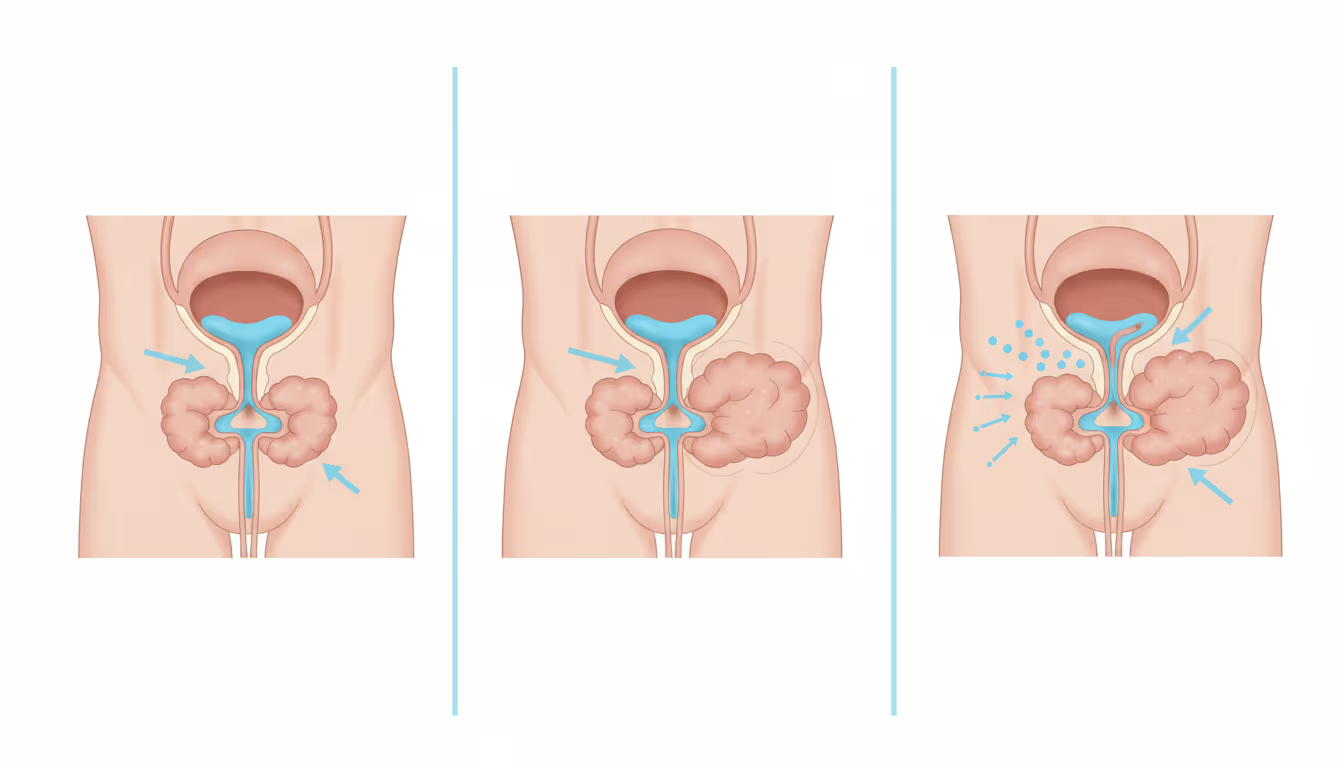
Prostate enlargement is primarily caused by benign prostatic hyperplasia (BPH), a condition that increasingly affects men as they age. BPH typically starts in a man's 30s, progresses gradually, and often leads to noticeable symptoms after the age of 50. In BPH, the normal components of the prostate enlarge in both size and number. This growth can obstruct the urethra, which runs through the center of the prostate, thus hindering urine flow from the bladder to the outside. This blockage can result in urine retention and frequent urination, and in severe cases, it may lead to a complete obstruction.BPH is a prevalent condition, with half of men over 50 experiencing symptoms, though only 10% require medical or surgical treatment. Importantly, BPH is entirely benign and not a precursor to cancer. Treatment is typically reserved for men with significant symptoms, while most can manage the condition with annual medical monitoring. Medical treatment for BPH involves medication that targets the underlying mechanisms of the condition. Since BPH growth is linked to dihydrotestosterone (DHT), the main hormone in the prostate, certain medications inhibit the enzyme responsible for DHT production, thereby lowering its levels and helping to reduce prostate size. Additionally, alpha-1 blockers, a class of drugs, work by relaxing the muscles of the prostate and bladder neck, alleviating urinary obstruction caused by the enlarged prostate.




